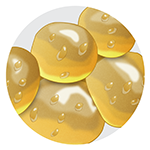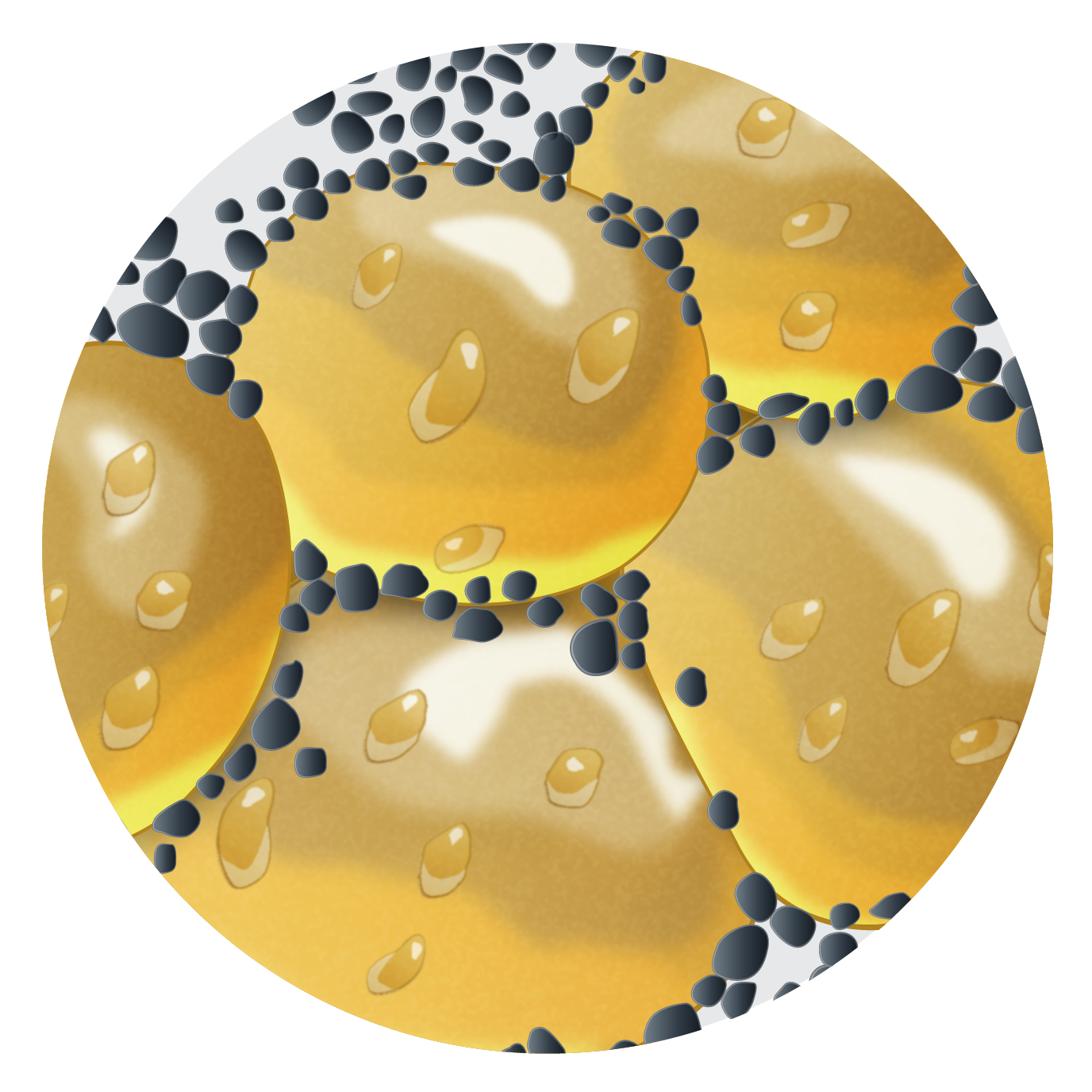Welcome!
Your DNA Brought You Here
Your 3X4 Genetics Blueprint and Weight Loss
How we consume, absorb, distribute, store, and burn the calories from food varies between individuals, largely because of genetic variation. In addition, hunger and fullness may be experienced differently from person to person. Knowing how you are hard-wired to respond to your diet and environment can give you powerful insights to enable you to work with your body, not against it.
Weight management is complex. The recommendations below must be considered in the context of your entire 3X4 Blueprint report, your current health status, and your medical history, to maximize the outcome. If you feel your health concerns are contributing to your weight-loss challenges, please visit our 3X4 Practitioner Locator to connect with one of our 3X4 accredited practitioners who can assist you in your weight-loss journey.
For each of the pathway recommendations we have provided, supplements have been suggested. To be sure you are taking only the supplements you need, we advise you to consult with a health care professional. The supplement recommendations provided here are a guideline only. We have summarized the most beneficial recommendations for you at the end of this page
These Short Videos Will Give You Insights Into The Report Recommendations
Click On The Section You'd Like To Learn More About
Swipe to explore
 ADIPOGENESIS
ADIPOGENESIS
The formation, storage, and release of fat cells are affected by variability in our genes. These gene variations may be partly responsible for why some people find it easy to gain or lose weight compared to others, even though their diet and lifestyles are similar. How our fat cells release energy is determined by certain genes and their variations. Knowing how your fat cells are predisposed to store and release energy can empower you to make the right diet and lifestyle choices to suit your unique genotype.
RECOMMENDATIONS
Diet:
- Support the removal of fat-soluble toxins that may increase fat storage by eating detoxifying leafy greens (cilantro, collard greens, beet greens, and parsley). A medical metabolic detoxification program may be beneficial to accelerate fat loss. (It is highly recommended that you consult one of our 3X4 accredited practitioners to assist with this kind of program.)
- Focus on reducing inflammation by regularly consuming anti-inflammatory foods such as herbs and spices (cloves, cinnamon, rosemary, thyme, sage, curcumin, and ginger e.g., curries and golden milk) and omega-3 rich foods like wild-caught fatty fish, chia, flax seeds, and macadamia nuts daily.
- Reduce energy intake by choosing high-quality, unprocessed, nutrient-dense foods. Avoid food high in sugar and saturated fat. Eliminate trans fats completely.
Lifestyle:
- Fat-soluble toxins from normal metabolic processes and the environment increase fat cell storage. Support toxin elimination through dry brushing, rebounding, lymph drainage massage, sweating with a sauna (infrared or steam), and exercise.
- Practice intermittent fasting or time-restrictive eating at least 2-3 times a week, to help regulate inflammation and reduce fat storage.
- Cold exposure through cold water swimming, showers or immersion, or cryotherapy, stimulates the formation of brown fat tissue which releases energy through heat production called non-shivering thermogenesis.
Supplements:
- Omega-3s (EPA & DHA) 1000-2000mg to reduce inflammation.
- Sulforaphane (whole broccoli sprout) 20mg per day or a fiber supplement for detoxification support.
- Green Coffee Bean Extract of 180-200 mg per day increases fat breakdown.
 APPETITE / SATIETY / INTAKE
APPETITE / SATIETY / INTAKE
Some people are very sensitive to the sensation of satiety (fullness), while others often overeat and take longer to register that they are full. We all experience hunger and fullness differently. While many people believe that serving sizes and other eating behaviors should be equal for all, variations in our genes determine our appetite level and satiety to some degree and consequently, may affect our eating patterns snacking, binge eating, servings, frequency of meals, etc.) in a very real, biological way.
RECOMMENDATIONS
Diet:
- Eat quality foods daily that make you feel fuller and more satisfied. These include food high in protein such as legumes and meats, and foods high in resistant starch such as cooked, cooled potatoes, Basmati rice, oatmeal, legumes, and buckwheat.
- Regulate your blood sugar levels, as low blood glucose increases hunger. Eat smaller meals containing nutrient-dense foods and combine high-fiber carbohydrate sources with leafy vegetables, protein-rich food, and healthy fats like coconut, avocado, nuts, and seeds. Consider intermittent fasting which helps regulate glucose and insulin levels.
- Eat food that supports the production of brain chemicals involved in appetite and satiety including almonds, apples, avocado, green tea, and lima beans.
Lifestyle:
- Balance brain chemicals responsible for appetite regulation (serotonin, dopamine, leptin, and ghrelin) through daily exercise, adequate sleep, and aromatherapy oils like lavender and lemongrass.
- Practice intuitive eating, mindfulness, and eliminate distractions while eating to manage hunger and satiety signals. Be mindful of the structure/timing of meals and choices made when eating out.
- Experiment with different cooking techniques such as roasting to caramelize food’s natural sugars, and disguise bitter-tasting foods in stews and smoothies.
Supplements:
- Gymnema extract (100mg) helps reduce sweet cravings.
- L-Tyrosine (500-1000mg) supports dopamine production
- Chromium (200mcg) supports insulin function.
 PRO-INFLAMMATORY FAT
PRO-INFLAMMATORY FAT
Fat cells are not just inactive storage compartments for excess weight - they are metabolically active messengers that control our energy levels. These messenger molecules found in fat tissue are called adipokines. Fat tissue secretes various pro- and anti-inflammatory adipokines to manage inflammation. If there is excess adipose tissue in the body, the inflammatory response can become disrupted and these proinflammatory molecules increase. Obesity-induced inflammation can be managed by losing excess weight which reduces adipokines.
RECOMMENDATIONS
Diet:
- Include daily servings of foods naturally or enriched in omega-3s such as wild-caught fatty fish, flax seeds, macadamia nuts, chia seeds, hemp seeds, spinach, eggs, grass-fed meats, and dairy.
- The gut microbiome moderates inflammation. Consume fermented products like kefir, yogurt, kimchi, and kombucha, (if you have a purple histamine overload pathway, you may want to avoid these ferments) and eat high-fiber foods that balance the microbiome like Jerusalem artichokes, asparagus, garlic, onions, and chicory root. Start with tiny amounts and increase slowly.
- Eat foods rich in vitamin A (liver, poultry, fish, dairy, carrots, pumpkin, red peppers) to enhance vitamin D's anti-inflammatory effect.
Lifestyle:
- Cold exposure, moderate exercise, and intermittent fasting help to reduce inflammation.
- Meditative movement therapies (MMT) like Qigong, dance meditation, yoga, and Tai Chi, positively impact the gut microbiota and reduce inflammation.
- Sun exposure for 20-30 mins a day supports vitamin D production, which provides anti-inflammatory benefits.
Supplements:
- Omega 3 EPA and DHA 1000 mg per day to reduce inflammation.
- Curcumin reduces gut inflammation.
- Vitamin A and D reduces inflammation.
 ENERGY EXPENDITURE
ENERGY EXPENDITURE
Energy expenditure is the amount of energy (kilojoules or calories) that is needed to carry out important functions such as breathing, digesting food, circulating blood, regulating temperature, and exercising. The more commonly used term when referring to how we burn calories is to say we have a 'fast' or 'slow’ metabolism. The rate at which we use and manage calories for energy is largely determined by our genes, our activity, what and how much we eat, resulting in significant individual differences between how we burn energy.
RECOMMENDATIONS
Diet:
- Regularly consume foods, herbs, and spices that help your cells to release energy: curcumin, berries, chili peppers, green tea, berberine, and omega-3 fats from fish, seeds, and nuts.
- Avoid calorie-dense, processed foods, limit saturated fat, and ensure adequate hydration daily.
- Begin all meals with a vegetable-dense starter, such as a soup or a salad to contribute to an overall reduction in calorie intake.
Lifestyle:
- Ensure moderate/high-intensity exercise regularly to increase energy expenditure. Consider your pathways in the activity category to support optimal outcomes.
- Boost your mitochondria through intermittent fasting, adequate sleep, cold exposure, and high-intensity interval training (HIIT).
- Ensure adequate oxygenation making use of deep breathing practices, regular physical exercise, and address sleep apnea.
Supplements:
- Adaptogens such as Rhodiola Rosea or Ashwagandha to support stress response.
- B-Complex Vitamins support energy expenditure.
- L-Carnitine 2000 mg supports energy expenditure from fat breakdown.
 EXERCISE RESPONSE
EXERCISE RESPONSE
Research has confirmed that people's response to exercise varies considerably. Some respond quickly to exercise (e.g. they get fit fast and their body composition changes favorably), while others are less sensitive to exercise's effects. A significant contributor to these differences in exercise response is genetics. An individual's ability to mobilize stored body fat and burn it for exercise fuel is partly predisposed by certain genes. It is useful to understand the extent exercise may help weight loss and how to balance these factors out.
RECOMMENDATIONS
Diet:
- Manage your weight with high-quality, nutrient-dense foods, rather than relying on exercise alone. Eliminate calorie-dense, processed foods.
- Consume foods, herbs, and spices daily that naturally increase energy expenditure (turmeric, chili peppers, purple berries, and green tea).
- Eat foods daily that are rich in nutrients known to support energy expenditure: B vitamins, nitric oxide, and carnitine (beets, cocoa, leafy greens, pomegranate, berries, legumes, poultry, dairy, and fish).
Lifestyle:
- Although the genetics in this pathway may indicate that exercise may not be your best weight loss tool for you, exercise is still important for cardiovascular health and stress management. Exercise regularly to improve your fitness, and heart health, and boost endorphin production. Consider your pathways in the activity category to support optimal outcomes.
- Boost your mitochondria through intermittent fasting and cold exposure.
- Ensure adequate oxygenation and make use of deep breathing practices, and address sleep apnea.
Supplements:
- L- Carnitine 2000mg may support energy expenditure.
- B-vitamins may help with energy expenditure
- Conjugated Linoleic Acid (CLA)
 WEIGHT GAIN & WEIGHT LOSS RESISTANCE
WEIGHT GAIN & WEIGHT LOSS RESISTANCE
There is considerable inter-individual variability in our physical ability to lose, gain, or maintain a healthy weight. Certain gene variations affect how we regulate energy and make us more genetically prone to weight gain and slow weight loss. A one-size-fits-all model does not exist when it comes to how much or how frequently we should eat, or what type of exercise we should do and for how long. Genetic variations can explain, at least in part, how people respond to overeating, exercise, and diet.
RECOMMENDATIONS
Diet:
- Eat nutrient-dense fresh produce and achieve a balance of high-quality proteins, carbohydrates, and fats daily.
- Be mindful of snacking. Choose nutritiously balanced foods (e.g., berries with yogurt, vegetables with hummus) and eliminate processed foods.
- Be consistent with mealtimes to regulate blood sugar and restore hunger/satiety signals.
Lifestyle:
- Ensure 7-8 hours of sleep each night to assist the brain and body with good oxygenation and detoxification for weight management.
- Set attainable and realistic goals around body weight.
- A therapist, practitioner, or support group that offers cognitive behavioral therapy (CBT), intuitive eating, or mindfulness skills can assist in addressing triggers to poor eating behavior.
Supplements:
- Omega 3 (EPA & DHA) 1000mg reduces inflammation and fat storage.
- Rhodiola Rosea or Ashwagandha are stress adaptogens that help reduce cortisol.
- L-Carnitine 2000mg supports energy expenditure.
KEY RECOMMENDATIONS
Diet:
- Include a variety of colorful nutrient-rich fresh fruits and vegetables at every meal and favor whole grains over processed starchy foods.
- Eat proteins that are high quality and rich in omega 3 like grass-fed meat, wild-caught fish, free-range poultry, and eggs. Vegetarian sources of protein include lentils, beans, and chickpeas (garbanzo beans).
- Favor foods and oils that are naturally high in unsaturated fats like nuts, seeds, olives, and avocado.
Lifestyle:
- Adequate sleep supports detoxification, reduces inflammation, and supports appetite control. Practice sleep hygiene with regular bedtimes, sleeping in a dark and cool environment, and avoiding blue light exposure from screens 2-3 hours before bedtime.
- Manage the effects of stress using cold exposure, meditation, spending time in nature, journaling, and deep breathing exercises.
- Use exercise as a tool to increase endorphins, improve fitness and cardiovascular health, and increase energy expenditure.
Supplements:
- Multivitamin with B vitamins and minerals provides support nutrients for weight management.
- Omega 3 (EPA and DHA) reduces inflammation.
- Adaptogens like Ashwagandha and Rhodiola Rosea support stress response.
DISCLAIMER
While 3X4 believes in using your genes to guide your journey to better health, it's essential to consult with your healthcare professional before taking action based on information provided in your 3X4 report. Aspects which your healthcare professional may consider or advise you on include:
- Which supplements are safe for you to take, and which supplements are safe to take together,
- Which weight-loss programs, fitness program, physical activities, beauty regimes are right for you and your current situation,
- Whether there are any interactions with medications you are taking and/or treatments you are undergoing for any condition or disease, and/or
- Providing you with additional resources on diagnosis, treatments, disease prevention, cures, medication, or anything else related to your health.

